
 Flash News
Flash News
EULEX mandate in Kosovo extended until 2027
Drug trafficking network dismantled, 11 arrests in Foggia, an Albanian at the center of the investigation
The race for the head of the BKH, the deadline for applications ends today
He injured the married couple in Rrogozhina, here is who the perpetrator is
He injured his neighbors with a gun, the perpetrator surrendered to the police

Sasa Ilic / Sandbox
If slippers are bought in the open market of goods, then in popular Serbian jargon they are called "shiptarka". If someone is ugly, then he has an "Albanian face". If the professor at school gives a lecture on tolerance, then he is "Albanian". If anyone criticizes the government, then he is an enemy of Serbia and necessarily "Albanian". When someone speaks the dialect of the Resava area, then it is said that he has an "Albanian accent". When a group of fans from Belgrade rushes into a fight with another group, it is said that they are "beating the Albanians". If there is any protest of any minority that is denied its rights, then it is said that the "Albanianization of that country" has taken place.
When Aleksandër Vulini, as Minister of the Army during 2019, declares that he is "for the fastest and safest demarcation with the Albanians" then it can be said that he does not think anything good about the Albanian neighbors in Kosovo. On the contrary. His statement is based on the long tradition of pejorative use of ethnonyms, which in the Serbian language has acquired a whole spectrum of negative meanings and has nothing to do with the word "Albanian" that Albanians use themselves. For this, when Vulini says "Albanian", and when the Kosovar Minister of Foreign Affairs Melisa Haradinaj Stublla says "Albanian", this is not the same. Minister Vulin knows this very well, who in October last year deliberately called the Kosovar minister "shiptarkë". During the same month, Vulin had a series of racist performances,
In the absence of proper politics, dialogue, and responses, Serbian politicians often call for this kind of discrimination against Albanian interlocutors. This is done in a special way by those politicians who have been or continue to be, in charge of coordinating relations with Kosovo. Marko Djuric, Serbia's current ambassador to the United States, used the insulting term in his official statements when he headed the Serbian government's Chancellery for Kosovo, which was previously headed by Aleksandar Vulini.
Due to such behavior and the use of hate speech in official communication with Albanian politicians, the Chairman of the National Council of Albanians in Serbia, Ragmi Mustafa has filed an indictment against him in June 2019. "Respect for national minorities is legal and constitutional obligation of the government, while respecting and accepting the other is a prerequisite for a democratic society. In a democratic government and state, any minister who incessantly insults national minorities should at least be fired. "Albanians are not guilty of the fact that the Serbian government does not have democratic capacities", Mustafa said on that occasion.
It turns out that this finding on the lack of democratic capacity hits the core of Vucic's policy reports towards Albanians in Kosovo, but also in Presevo. It will soon be 9 years since taking responsibility for the realization of the normalization process between Serbia and Kosovo, but from all this there was nothing, only that hatred has increased to such an extent that ministers who offend Albanians, not only who are not sanctioned, but are immune even before the court. The last time such an accusation was found in a Serbian court was at the beginning of 2017, when, according to the accusation initiated by the youth for human rights against the newspaper "Informer", The Court of Appeals in Belgrade ruled that "the term 'Albanian' is considered politically incorrect and with offensive content in the Serbian language for members of the Albanian national minority living in Kosovo and Metohija." Because, the term "Albanian" in the dictionary of local media and politicians until then was treated as hate speech, but two days ago it is no longer so since the Supreme Court in Belgrade rejected as unfounded the accusation of the Albanian National Council against Minister Vulin.
Such an epilogue of the trial produced great joy in the ranks of the Socialist Movement of Serbia, which immediately came out with a linguistic statement, which in itself contains discrimination and degradation for members of the Albanian minority in Serbia. Under the title "Great victory of the Serbian language and common sense", Vulin's party orders the following: "If Ragmi Mustafa from the National Council of Albanians of Serbia would know better the Serbian language and the history of the Serbian people, then never "It never occurred to him to accuse Alexander Vulin of using the word 'Albanian', a word that comes from their language and with which they call themselves." In addition to the usual threat: "If Shaip Kamberi, who receives the salary of a deputy from the citizens of Serbia, would appreciate more the place that has given him everything in life,
So, it is about open discrimination of the Albanian national minority in Serbia, which is now legally legitimized. After the "protection of Vulin of the Serbian language", any individual, group, or community can use the vocabulary of hatred against national minorities without fear of being sanctioned. For Aleksandar Vuçi. And Ana Brnabiç this does not pose any problem since they themselves participate in this collective humiliation of Albanians. However, they stand behind the deep meaning "for the Serbian language and culture", as well as Aleksandër Vulini understands them, who was very happy when he heard about the accusation of Ragmi Mustafa. "This is a compliment for my consistency and the persistent fight that I wage for the right", said Minister Vulin on this occasion,
However, the persistent vocabulary of hatred of a minister can not be an isolated case, nor can it be treated as a vocabulary of the citizen Aleksandar Vulin, because it was used during his time as Minister of Defense of the Republic of Serbia. Also, the statement of the Socialist Movement after Vulin's "victory" reveals a deep form of discrimination, because it reveals the thesis that anyone who is before the jurisdiction of the Republic of Serbia, whether a minority or not, is obliged to endure verbal terror and the other type by the majority, through deep-rooted stereotypes of street vocabulary which manages to rise to the level of political vocabulary. For this, they call on Albanian politicians to "learn the Serbian language better" and to express greater respect "for the country that has given them everything in life." This means that insults and humiliation also mean that you can not defend yourself before local courts by government representatives who can treat you as you please.
However, the accusation presented by the National Council of Albanians in Serbia, speaks of something completely opposite. It is a sign that Albanians in Serbia, as well as other national minorities, know very well the Serbian language and culture, which has become part of the political culture of Vuçi.'S government.
In such an environment of vulgar "sound reason", the chances for dialogue are slim and almost impossible for any form of political normalization.
* Sasa Ilic was born in 1972. He graduated from the Faculty of Philosophy in Belgrade. He has so far published three collections of stories and three novels, one of which, entitled "Dog and double bass", has won the highest literary award NIN in Serbia for 2019. His prose has been translated into Albanian, Macedonian, German, and French.
Latest news


Couple injured in Kavaja, police find firearm hidden in wall
2025-06-06 19:05:19
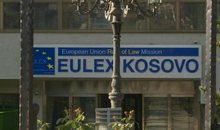
EULEX mandate in Kosovo extended until 2027
2025-06-06 17:58:20
These are the 3 zodiac signs that will be favored in the next decade
2025-06-06 17:50:52


Anthropology
2025-06-06 17:06:00
EU supports International Criminal Court after US sanctions
2025-06-06 16:47:51
Gonxhe ignores concerns about Spaçi and defends the continuation of the works
2025-06-06 16:31:42
Providing online services, report: Institutions, delays in update requests
2025-06-06 16:24:10
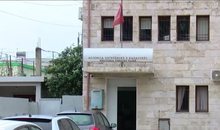
The head of the Vlora Cadastre is changed again
2025-06-06 15:58:49
With a rounded belly, Dafina Zeqiri enjoys the holidays with her partner
2025-06-06 15:36:06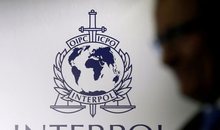

Foods that should not be missing from the Eid al-Adha table
2025-06-06 15:04:48
They exploited girls for prostitution in Vlora, 28-year-old arrested
2025-06-06 14:44:26
Israel warns of more attacks in Lebanon
2025-06-06 14:26:30
The race for the head of the BKH, the deadline for applications ends today
2025-06-06 14:15:18
14-year-old girl in Vlora rescued after risking drowning at sea
2025-06-06 14:04:23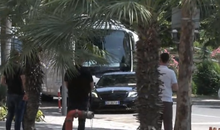
Challenge with Albania, Serbian team arrives in Tirana
2025-06-06 13:49:04
He injured the married couple in Rrogozhina, here is who the perpetrator is
2025-06-06 13:34:20

Berisha wishes Eid al-Adha: Blessings to your families and our nation
2025-06-06 13:09:28
He injured his neighbors with a gun, the perpetrator surrendered to the police
2025-06-06 13:02:47

Tom Cruise enters Guinness World Records
2025-06-06 12:38:48
From orange peels to bananas, discover the foods that help you with stress
2025-06-06 12:28:53


How did the feud between Donald Trump and Elon Musk start?
2025-06-06 11:52:32
The prosecution sends 5 Kosovar citizens to trial for drug smuggling
2025-06-06 11:33:56
21-year-old injured with knife in Saranda
2025-06-06 11:24:10
Kosovo citizens flock to the Albanian coast, long queue from Morina
2025-06-06 11:11:07
Gunfire in Kavaja, shot at a married couple
2025-06-06 11:05:01
Merz: Bashkëpunim i ngushtë Gjermani-SHBA
2025-06-06 10:45:35
A marijuana plantation is found in Cakran, a 24-year-old man is arrested
2025-06-06 10:25:53
Gianni De Biasi shows the formula for how we can win against Serbia
2025-06-06 10:08:57
Hoxha: The CEC was one of the main architects of the destruction of free voting
2025-06-06 09:52:16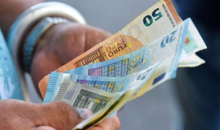
Foreign exchange, June 6, 2025
2025-06-06 09:33:01


Accident on the new Kukes bridge, three vehicles collide
2025-06-06 08:43:06
Horoscope, what do the stars have in store for you today?
2025-06-06 08:28:14
Clear weather with few clouds, the forecast for this Friday
2025-06-06 08:13:54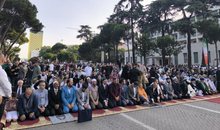

Morning Post/ In 2 lines: What mattered yesterday in Albania
2025-06-06 07:46:29
In trial for tender abuse, socialist MP targets ILD
2025-06-05 22:37:09
Tabaku: The left in Albania has shown with facts that it is against integration
2025-06-05 22:09:44

Uzbekistan qualifies for the World Cup for the first time
2025-06-05 21:14:35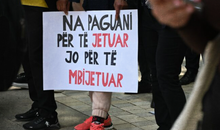
Index: Albania among countries that consistently violate workers' rights
2025-06-05 20:53:35
Accident in Burrel, two vehicles collide, 6 injured
2025-06-05 20:31:27
Discover foods that help you relieve stress
2025-06-05 20:16:34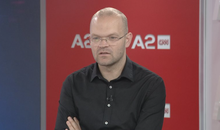
Kalaja: I have a video where votes were taken from the DP and given to the PS
2025-06-05 19:58:04
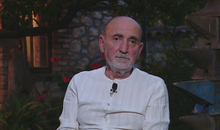

Berisha: The international community does not accept the farce
2025-06-05 18:57:18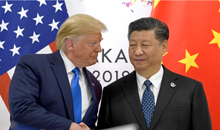
Trump after conversation with Xi: US and China will resume trade talks
2025-06-05 18:35:36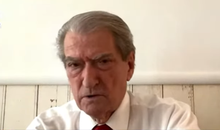
Berisha on May 11: 28 MPs were under the patronage of drug cartels
2025-06-05 18:15:44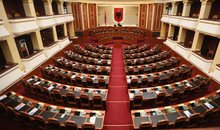
The session in the Assembly closes, the majority approves the draft laws alone
2025-06-05 17:55:21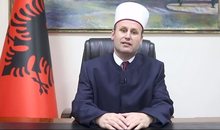
Kurban Bajrami, kreu i Komunitetit Mysliman të Shqipërisë uron besimtarët
2025-06-05 17:29:17
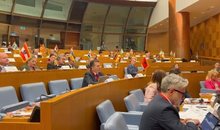
Media at OSCE conference: Organized crime has captured the Albanian state
2025-06-05 16:50:41
Car hits 75-year-old man at white lines in Vlora
2025-06-05 16:42:48
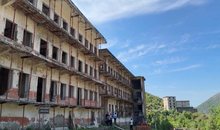
Protest in Spaç, after restoration interventions
2025-06-05 16:27:49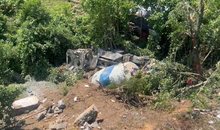
Photo/ Concrete mixer falls into abyss in Ulëz, driver rushed to hospital
2025-06-05 16:15:15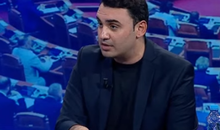
May 11/ Këlliçi: There are attempts to influence the final OSCE-ODIHR report
2025-06-05 16:06:38
Immigration is emptying schools and universities
2025-06-05 15:53:38
Plague breaks out, Kosovo bans import of sheep and goats from Shkodra and Kukësi
2025-06-05 15:48:23
After Tirana, KAS also decides to open the ballot boxes in Dibër
2025-06-05 15:31:03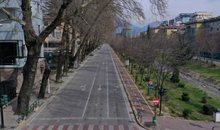
Tirana is "paralyzed" again, here are the roads that will be blocked tomorrow
2025-06-05 15:20:12
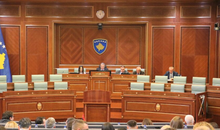
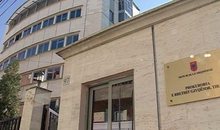

Serbia is coming to Albania tomorrow, here's where it will be accommodated
2025-06-05 14:24:43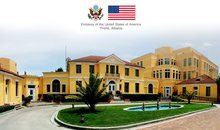
US Embassy updates visa appointment system: More flexibility for applicants
2025-06-05 14:21:01
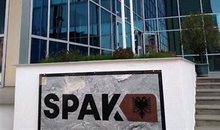
Drug trafficking with "tentacles" in Europe, GJKKO seals prison for 9 arrested
2025-06-05 13:39:35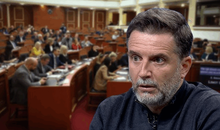
Deserting from the socialist ranks, Erion Braçe "becomes" a Democrat
2025-06-05 13:23:49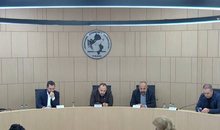
May 11 elections, KAS decides on a full recount of votes in Tirana
2025-06-05 13:22:28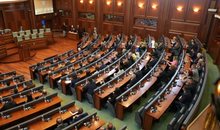
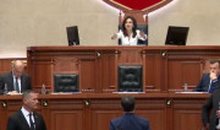
Clashes in the Parliament/ Elisa Spiropali expels Flamur Noka from the session
2025-06-05 13:04:42
A Girl, Otherwise, A Boy
2025-06-05 12:57:30
Accident at the "Albchrome" factory in Elbasan, three people arrested
2025-06-05 12:54:40
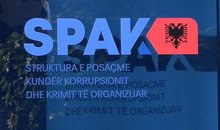

Berisha: The law of farce is that the dictator's votes are always increasing
2025-06-05 12:19:16


The murder saga, Alibej: It started after I gave Talo Çela's location
2025-06-05 11:45:27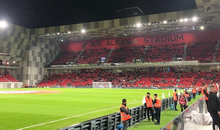

Muslims celebrate Eid al-Adha, KMSH announces where prayers will be held
2025-06-05 11:24:50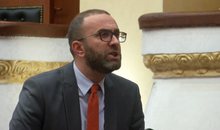
Bardhi: The EU delegation said that crime controlled the elections in Elbasan!
2025-06-05 11:16:51

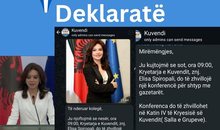
Journalists were censored by Spiropali, AGSH: Fraud and institutional propaganda
2025-06-05 11:00:20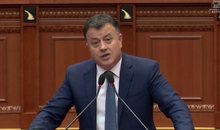
Noka-majority: The foundations of your power rest on the bought vote
2025-06-05 10:54:00
